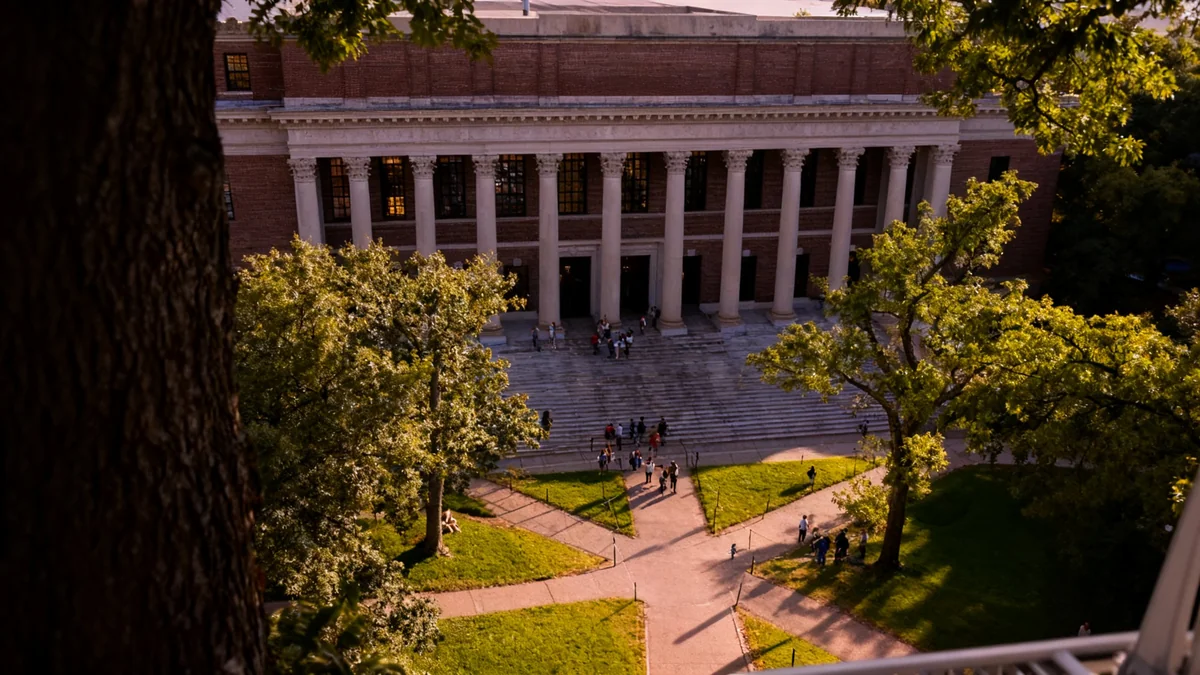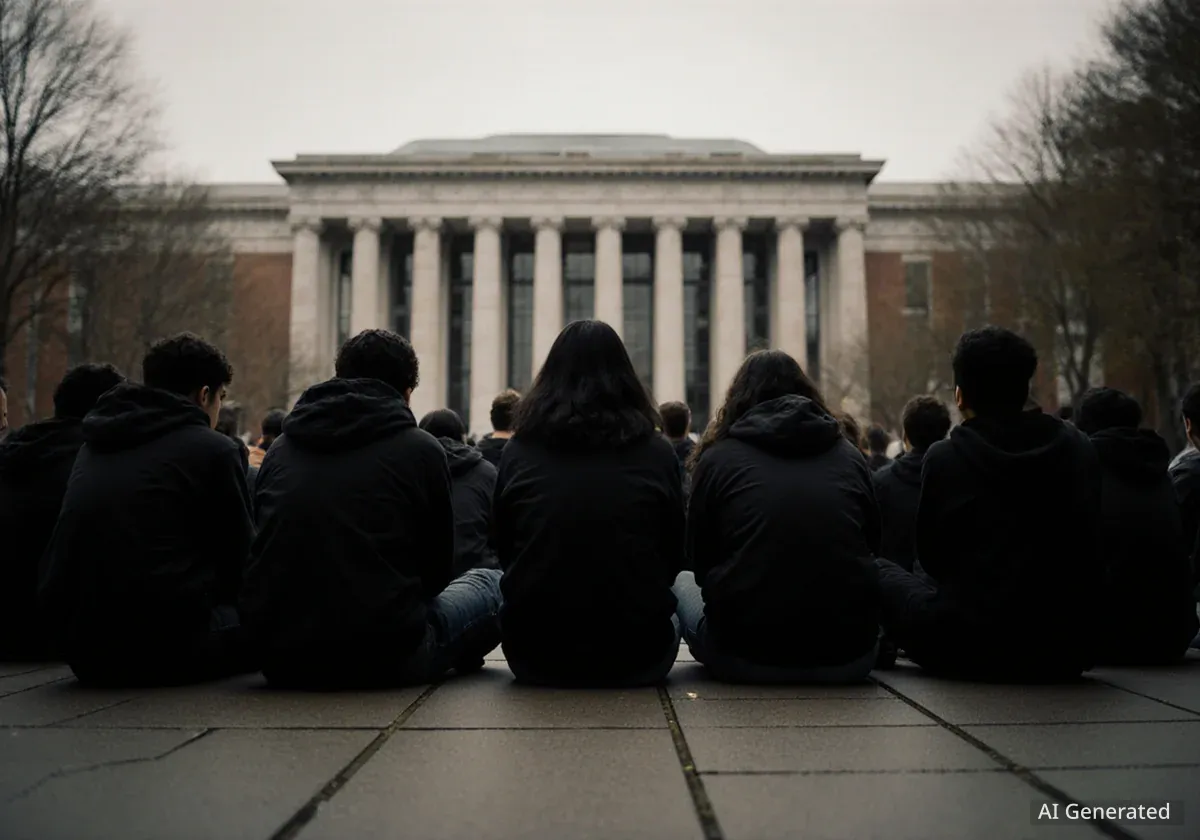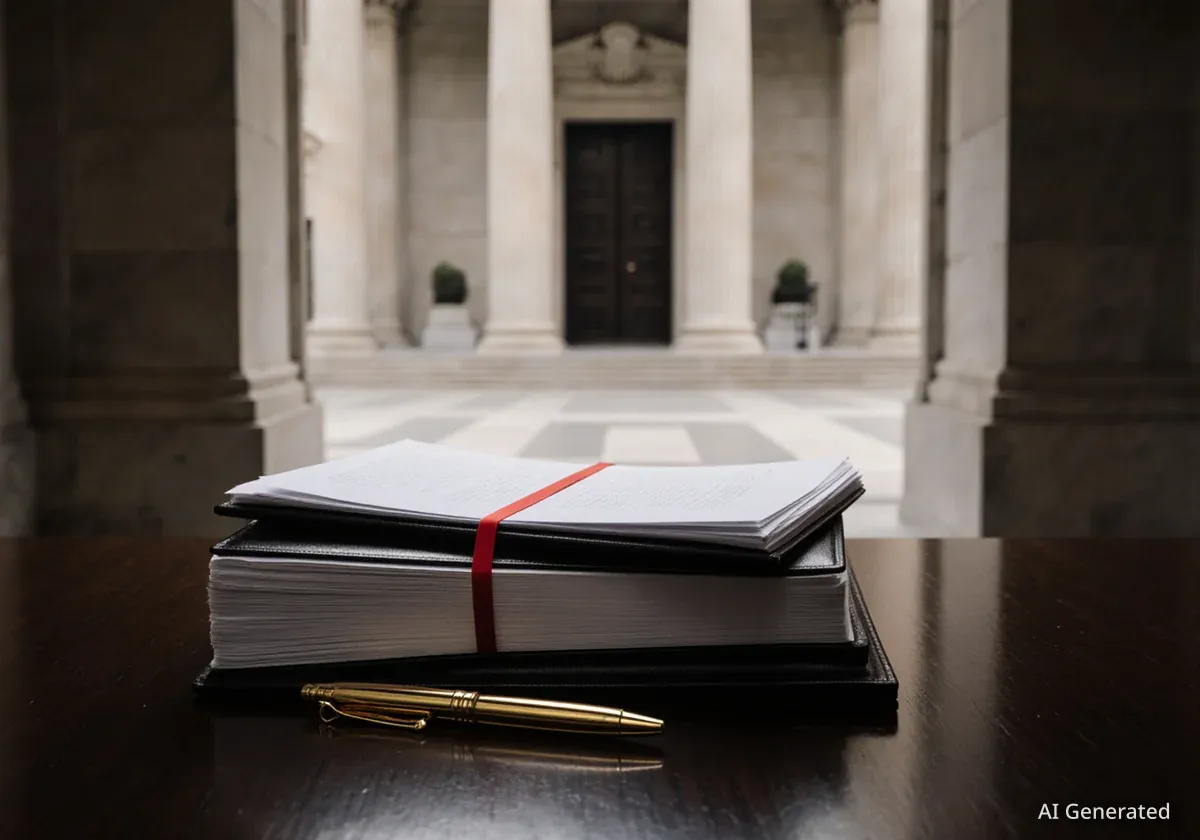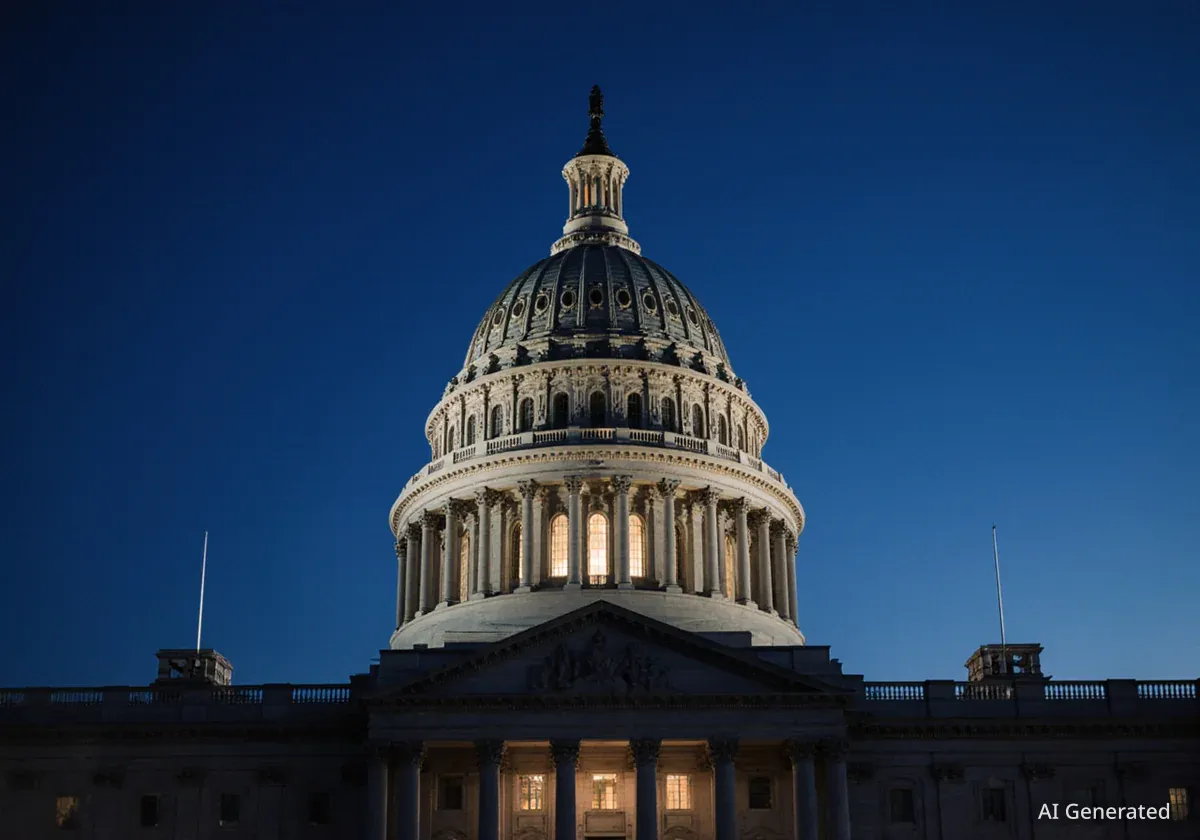Harvard University researchers are facing a continued funding crisis despite a federal judge ruling that a government freeze on their grants was unconstitutional. Nearly two weeks after the court's decision, millions of dollars in federal funds for critical health studies have not been released, leaving long-term projects and scientific talent in a state of uncertainty.
While scientists have received official notices that their grants are reinstated, the money has not followed. A blockage in a federal payment system has prevented the funds from reaching the university, forcing researchers to operate on contingency plans and draw from emergency reserves.
Key Takeaways
- A U.S. District Court judge ruled the Trump administration's freeze on Harvard's federal funding was unconstitutional.
- Despite the ruling, Harvard researchers have not received the reinstated funds, which total hundreds of millions of dollars.
- The delay is attributed to a block in a federal payment system controlled by the Department of Government Efficiency.
- Major long-term studies on diseases like tuberculosis, HIV, and cancer are impacted, along with the careers of young scientists.
Court Ruling Fails to Release Funds
A significant legal victory for Harvard has not translated into financial relief for its research community. The order from U.S. District Court Judge Allison D. Burroughs was expected to restore a vital flow of federal money, primarily from the National Institutes of Health (NIH).
Following the decision, researchers began receiving notifications that their terminated grants were being reversed. However, the optimism was short-lived. The funds remain inaccessible because federal employees have not processed them through a payment system managed by Department of Government Efficiency officials.
This situation has created a paradox where grants are officially active on paper, but the labs they are meant to support have no access to the capital. Researchers are now caught between administrative compliance and financial reality.
"We’re supposed to keep working, but there’s no money to support that," said Walter C. Willett, a professor at the Harvard School of Public Health. "We’re having to send in progress reports, financial reports, as though there’s actually real money flowing, but it's not.”
Widespread Impact on Critical Health Research
The funding freeze has severely affected Harvard's life sciences programs, which depend heavily on federal support. The consequences are being felt across numerous departments and long-standing research initiatives.
High-Stakes Medical Studies at Risk
Several prominent researchers have detailed the immediate challenges. Molly F. Franke, a professor at Harvard Medical School, had four NIH grants terminated in May. These grants, collectively valued at over $1 million, support research on drug-resistant tuberculosis and HIV interventions in multiple countries.
While she was notified that the terminations were reversed, no money has been restored. "When the grants were terminated, we had to come up with a plan to sunset projects and really maintain only essential activities," Franke explained. "And we’ve been advised to stick with that plan until further notice."
The Nurses Health Studies
Professor Walter C. Willett helps lead the Nurses Health Studies I and II, one of the most significant long-term health studies in the world. Initiated nearly 50 years ago, it tracks chronic disease risk factors in almost 300,000 participants and has received over $200 million from the NIH since it began. The current funding disruption threatens the continuity of this invaluable research.
Genetics and Hearing Loss Research
At Boston Children’s Hospital, a lab led by HMS professor Jeffrey R. Holt is making progress on the genetics of hearing loss. He estimates that 75% of his lab's funding comes from the NIH.
Holt stated that while his lab's work can continue in the short term, the postdoctoral program that supplies it with new talent is scheduled to be cut next year due to the funding losses. The uncertainty is creating significant unease among his team.
"We’ve been doing this for 25 years now, and we’re really at the cusp of making a big difference in people’s lives," Holt said. "It’s like the rug is being pulled out from under us."
Financial Strain and University Response
The scale of the funding halt is substantial. According to Harvard Medical School, it lost grants and contracts worth $230 million due to the administration's cuts. At the Harvard School of Public Health (HSPH), the federally funded research portfolio was effectively cut in half, dropping from $200 million to $100 million for the 2025 fiscal year.
To cope with the shortfall, HSPH has been forced to use its own reserves, take on debt, and accept bridge funding from a $250 million pool established by Harvard's central administration. These are temporary measures to prevent a complete collapse of research operations.
Financial Impact by the Numbers
- $230 million: Value of grants and contracts lost by Harvard Medical School.
- 50%: Reduction in federally funded research at the Harvard School of Public Health for fiscal year 2025.
- $250 million: Pool of bridge funding allocated by Harvard's central administration to help offset losses.
Long-Term Damage to Scientific Community
Beyond the immediate financial problems, university leaders are concerned about the lasting damage to Harvard's research ecosystem. The instability threatens the institution's ability to attract and retain top scientific talent, particularly postdoctoral researchers and graduate students whose salaries are often paid by federal grants.
Sarah M. Fortune, chair of the Department of Immunology and Infectious Diseases at HSPH, has been advising her faculty to operate as if the federal money will not return. "The government does not show us any intent of honoring financial commitments that they made previously," Fortune stated.
She emphasized that the loss of personnel is more damaging than the loss of money. Once early-career scientists leave for more stable positions, their expertise is gone. "When those people disappear, even if the money comes back, that expertise does not come back, and it is extremely damaging, and it will take us years to recover," Fortune said.
The ongoing situation has eroded trust in federal funding mechanisms, creating a climate of uncertainty that could hinder scientific progress for years to come, regardless of the eventual outcome of this specific dispute.





